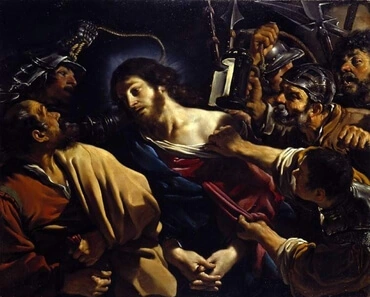Explanation of John 1:10
By Brian David

The beginning of John 1 illustrated how divine truth – which is the ultimate expression of the Lord’s love – is the actual creative force of the universe and of reality itself. That idea is reinforced here: "him" refers to Jesus, who was the physical embodiment of divine truth, which indeed made the world.
This verse offers another level, though. "World" represents the church, which is defined in the Writings as "where the Lord is known and where the Word is." By that definition a "church" can be as small as one person, or as large as billions of people worshiping through a wide variety of denominations. And the Writings tell us that the Lord has made sure that such a church always existed, from prehistoric times when the Lord offered "the Word" – His truth – to people directly up through today, when we have the Word in the form of the Bible.
But the world did not know him. At the time the Lord came among us as Jesus, people had turned away from the deeper meanings of the Word (which they then had in the form of the Old Testament), and had little to no concern for knowing the Lord. His church – the church among the Children of Israel – had turned away.
This might seem like a merely historic idea, something that happened then but has little to do with us now. But each one of us is a "church," and each one of us can know the Lord and the Word, or turn away. We all go through states when we are like the church at the time the Lord was born, and He can rebuild us now even as He rebuilt the church then. For that to happen, though, we need to turn to the Word – the Bible – and know the Lord.
(Notae: Apocalypse Explained 1093; Canons of the New Church 9; The Apocalypse Explained 294 [16])
Arcana Coelestia #6158
6158. 'For seed of the field' means for mental nourishment. This is clear from the meaning of 'seed' as truth and good, and so faith and charity, dealt with above in 6154; and from the meaning of 'the field' in a general sense as the Church, dealt with in 2971, 3766, and in a particular sense as the Church with the individual person, thus a person who has the Church within him, that is, who is receptive of truth and good. When that person is called 'the field', his mind is what is meant; for a human being is not a human being by virtue of the outward form he takes but by virtue of his mind, that is, of his understanding and will which constitute his mind, and also by virtue of the truth of faith and the good of charity which constitute a yet more interior mind. Since the latter, the mind, is in a genuine sense the human being, he is nourished and sustained by truth and good. And because truth and good are meant by 'seed', nourishment is also meant by it. This is also evident from the words that immediately follow - 'for your food, and for those in your households, and for food for your young children'. From all this one may now see that 'seed of the field' means mental nourishment.






